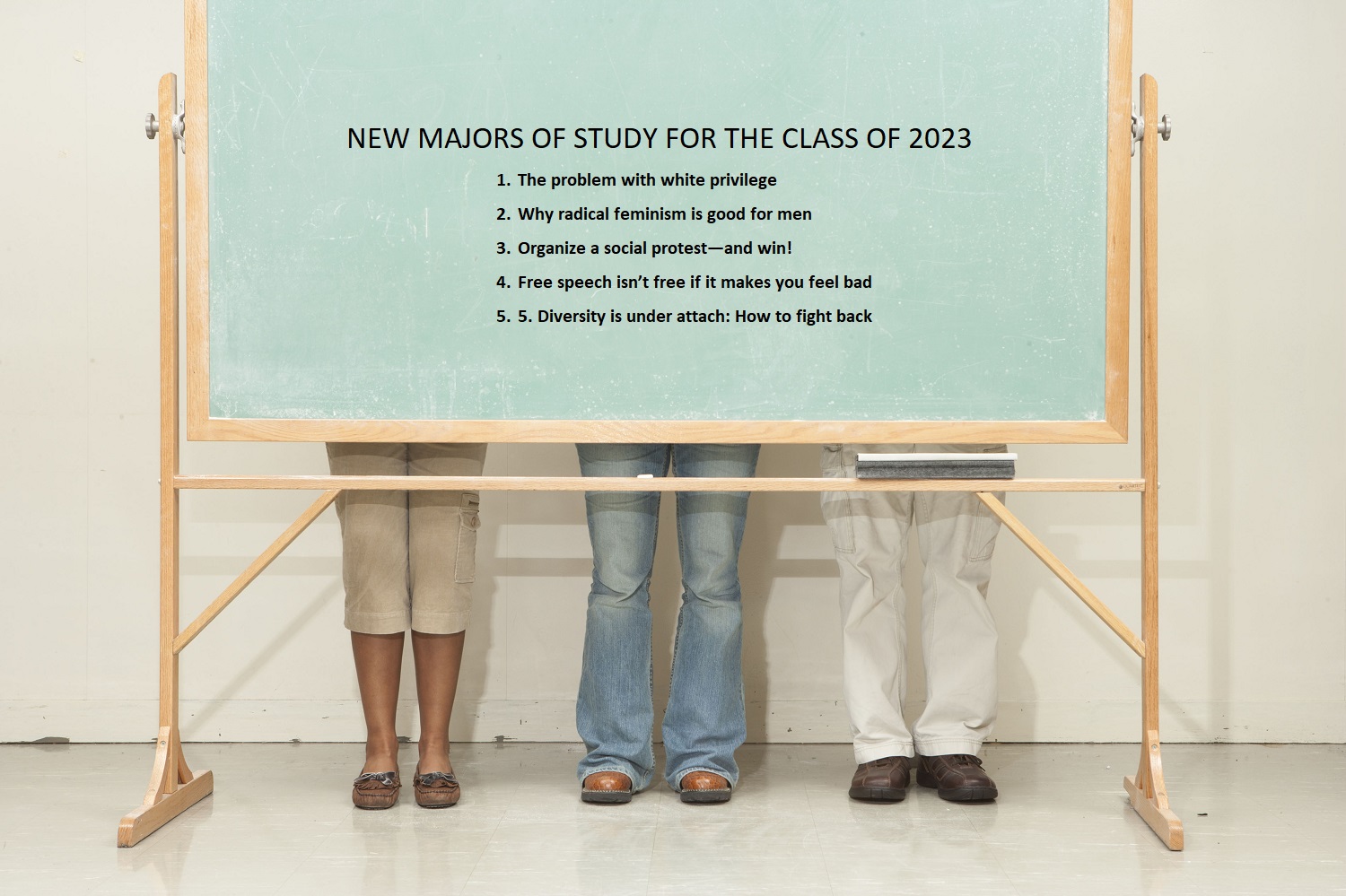
Two-thirds (66.3%) of English departments responding to a survey indicated that the number of undergraduates majoring in English is either lower or sharply lower. Only 8.7% reported an increase in the number of majors; none reported a sharp increase.
That’s the abysmal finding of a survey of English departments issued last month by the Association of Departments of English (ADE). Popularity is down—way down—in just the last ten years.
But does the ADE report, or does anyone in high places in the English world, ever frame the pattern as “They find us less attractive every year”?
Related: Defending a Debased Version of the Liberal Arts
Not that I’ve heard. The sorry diminishment of English has transpired under their noses. It has occurred at the same time that identity politics have overtaken scholarly standards. More professors than ever before list their specialties as subfields relative to racial, sexual identities and injustices, but we have no evidence that undergraduates find those interests compelling. Instead, we have anecdotal evidence for the opposite, and common sense says the same thing. How many 20-year-olds would want to spend a semester studying with the English professors behind this project? ()
The ADE authors find other reasons for the enrollment downturn. We hear of:
- the economic crisis of 2007-08, which made students more conscious of employment prospects.
- the push for more STEM majors.
- the “national decline in leisure reading.”
- and the rise of electronic and social media.
These are likely factors, but they are external ones. What about the internal features of the major, the curriculum and the personnel?
Related: The Overthrow of the Great Books
In the very next paragraph, after having enumerated those probable causes of diminishment, the report does turn inward and mark changes that have taken place within the discipline. We hear about:
- “the increased importance of issues of race, ethnicity, gender, and identity.”
- more emphasis on historical context.
- more emphasis on “global Anglophone literature.”
- attention to “new media.”
- and the growth of creative writing and composition.
Very well, the list is accurate. Instead of asking the obvious question of whether these revisions have played a role in the negative trend, however, the authors state in the following paragraph:
Such changes are part of a dynamic history, for the English department has been central to educational innovation and to the modern concept of the liberal arts and has spurred the creation of new areas in the humanities.
In other words, we’re still wonderful, doing wonderful things.
The numbers belie that claim. A great big puzzle stares at the authors of the report (and defenders of English) in the face. If English and English professors are dynamic and innovative; if they are so responsive to social change, then why has the major shrunk so much, so fast? The reasons given above don’t cut it, not by themselves.
Employers desperately want graduates who can communicate, especially in writing, a fact which should favor the choice of English. And many students who pursue STEM degrees don’t make the grade and go elsewhere. Why not to English? And, yes, leisure reading has dropped, but where are the professors pressing for more literature courses in the general education requirements?
(Note: They don’t want to bemoan the decline of reading because that would mean making a judgment of people’s personal choice of leisure activity, and speaking in praise of books against the lure of social media could come off as conservative or reactionary.)
It’s time for professors to look in the mirror—which, of course, they will not do. If they did, they would have to admit that the identity fixations that they have pushed into the discipline and that have served many of them so well in their careers are an institutional disaster.
I went through the whole report about the decline in English majors. Nowhere did I see any recognition that perhaps, just perhaps, students would rather study actual literary masterpieces and what they can teach us about human nature than study victimization, identity politics, and postmodern denials of reality. If prospective customers hear that the restaurant that used to serve Kobe hamburgers is now serving only weed burgers made from lawn clippings, who can blame them if they want to eat elsewhere?
Bob
Hello, this weekend is good designed for me, for the reason that this point in time i am
reading this wonderful informative piece of
writing here at my house.
Communication skills are just as important as technical knowledge in STEM fields. Give students the opportunity to authentically express their expertise to an audience.
Doh!